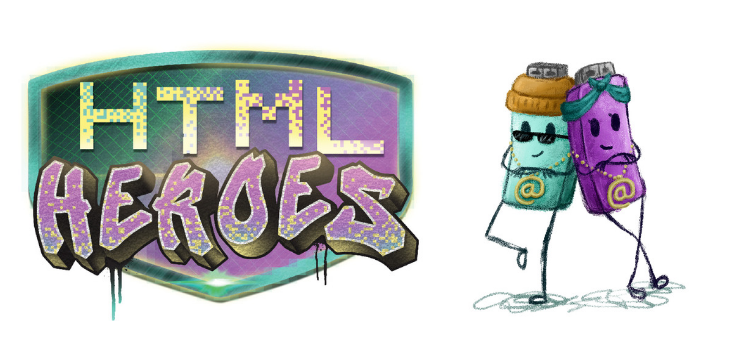BEST-PRACTICE GUIDELINES

Instructions for using the resource
Before beginning the HTML Heroes Programme read the teacher info before each lesson. Some preparation work is required before each lesson, some lessons require activity sheets, these can be accessed and downloaded at webwise.ie/html-heroes.
A whiteboard is required for the prgoramme and it important that you test the content before getting started. If using individual devices, ensure pupils have access to the programme.
You can find out more about the resource here: webwise.ie/about-this-resource/
Best-Practice Guidelines
Here are a few important steps we recommend taking before you begin the HTML Heroes Progamme.
Technology Use in the School
Teachers should familiarize themselves with the school’s Acceptable Use Policy and also refresh students about what the policy and the school’s rules around technology use. Some schools may also have a separate policy for smartphone use, which also should be looked at.
Anti-Bullying Procedures
All schools are required to formally adopt and implement an anti-bullying policy that fully complies with the requirements of the Anti-Bullying procedures. Before beginning this resource, familiarise yourself with the schools Anti-Bullying policy and make students aware of the schools procedures.
The School’s Duty of Care
Schools should take an active approach to meet the standard of care expected of them by educating the students and having strong, well-researched policies and procedures in place. Under the Child Protection Procedures for Primary and Post-Primary Schools 2017, schools are required to produce and display a Child Safeguarding Statement. This written statement specifies the procedures that are in place to ensure that children are protected from harm. These procedures require that the name of the Designated Liaison Person (DLP) and the Deputy DLP shall be recorded in the Child Safeguarding Statement and that the statement should be displayed in a prominent place, near the main entrance to the school. Familiarise yourself with the school’s Child Safe Guarding Statement.
Discussing Social Media
It is important that the discussions in this lesson focus on online activities, rather than on specific online services. You should try to focus discussions on the needs that motivate students’ internet use and not the tools they use to achieve these goals. In general, children use the internet to socialise, to share media, to find information, to play games, to communicate, and to learn.
You should be aware that some of the children in your class will be on the cusp of using social networking and media sharing apps and tools for the first time. Many of them will be haggling with their parents for permission to do this. Your words may be brought home and used as part of these negotiations. In this context, it is better to talk about “sharing photos” than “using Instagram”.
Under the new E.U General Data Protection Regulation (GDPR), Ireland has now set the Digital Age of Consent to 16 years old. This is the age at which children can legally consent to companies/organisations processing their personal/data or information for example when you sign up to an online platform or social media account. For children under the age of 16 consent must be give/authorised by the parent of guardian of the child.





